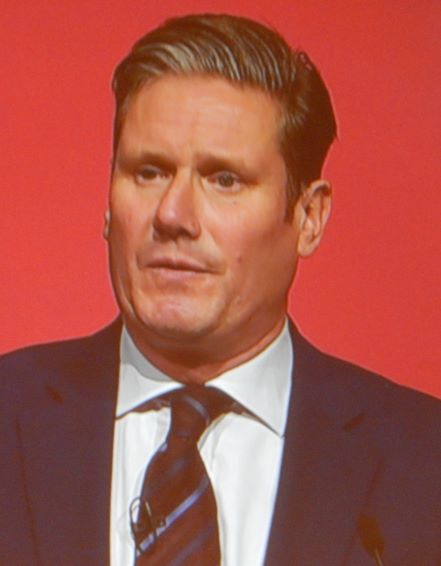By Stuart Leigh, Rhys Jameson and Sue Denham
This article has been submitted to Left Horizons by three authors from “The Struggle” blog. The original article can be found here. We publish it as an additional contribution to the debate and discussion taking place in the Labour Movement at this point in time.
**************
This time twelve months ago, anyone who said Liz Truss would be in the running to be Prime Minister within a year would probably have been met with concern and carefully worded questions about how long they had been out in the sun and how much stress they were under.
Equally, there seemed little doubt that Rishi Sunak was poised to gently guide Boris Johnson off to the permanent holiday he obviously wanted and take up the reins as Prime Minister. The row between the remaining candidates has sunk to the level where aides of Tory MPs accuse rival candidates of “shouty private school behaviour” as if almost every Tory MP in history was not the shouty misogynist product of a private school, with fond memories of the Bullingdon club. Yet here we are. It has really come to this. Liz Truss – in full Thatcher cosplay – is making Sunak fight for it.
Smugly blithe demeanour of leadership candidates
British capitalism faces a series of interwoven economic, political and climate crises any one of which would cause alarm for anyone remotely rational and clear-sighted. However, the contrast between the urgency of those crises and the smugly blithe demeanour of those vying for the leadership of the Tory party could not be starker. Inflation is at its highest rate since the 1970s and continues to climb, energy price caps will likely be 150% higher this October than they were last October and NHS waiting lists are predicted to top 10 million by the beginning of 2024. Yet instead of any solutions to these problems we have the final two candidates in the leadership bickering over how best to shovel yet more money into the bursting-at-the-seams offshore bank accounts of the rich.
It should be warning enough of the extent of the political crisis that British capitalism is undergoing that we are in the midst of the third change of Tory leadership in six years. The most bitterly fought area of this campaign is the economy – with Sunak painted as the candidate of growth-crushing tax rises and Truss as that of recession-boosting interest rate hikes. Beneath the wooden presentations, the smug self-entitlement, the mansplaining, the often tedious debates, and the total agreement on banning strikes and ramping up deportations to Rwanda, the candidates represent two very different responses to the current phase of the crisis of capitalism. To have two Tories stand up in public and tear lumps out of each other is absolutely extraordinary – we could even say outright stupid – but this is the stage we are at. The crisis of British capitalism is of such a depth, the economy and society driven into such a blind alley, that the only way forward is for one section of the British bourgeoisie to gain at the expense of the other. In short, the British bourgeois are not only split on how to move forward, they are having the argument out in public.
To understand the significance of this incredible public display of differences at the top of the Tory Party, we should turn back to Lenin discussing the symptoms of a developing revolutionary situation:
“We shall certainly not be mistaken if we indicate the following three major symptoms: (1) ….when there is a crisis, in one form or another, among the “upper classes”, a crisis in the policy of the ruling class, leading to a fissure through which the discontent and indignation of the oppressed classes burst forth. For a revolution to take place, …. (2) when the suffering and want of the oppressed classes have grown more acute than usual; (3) when, as a consequence of the above causes, there is a considerable increase in the activity of the masses, ….”, Lenin, Collapse of the Second International.
Tory splits over the question of Brexit
Little more than four years ago, the question of Brexit threatened to tear the Tory party in two. Widespread defections of Tory activists to the Brexit Party hobbled the Conservatives in the 2017 election, leaving May’s government reliant on the reactionary sectarians of the Democratic Unionist Party (DUP). By the time 2019 came around, the Tories managed to overcome the split in their ranks partly by turning to the popularist Johnson.

In turn, he took advantage of the sabotage carried out by Starmer et al in the Labour Party campaign – with Starmer installing the second referendum policy in place of respecting the vote – by campaigning on the slogan “Get Brexit done”. The Brexit crisis which threatened to carry out a historic split in the Tory party in fact became the issue which crippled the Corbyn lead campaign of 2019. Once more unable to agree on a way forward, the divisions amongst the rich and powerful are intensifying. To preserve their position both in Britain and amongst the imperialist powers exploiting the world, they know that they must do two things – confront the working class in Britain directly to impose lower wages and at a greater intensity of exploitation and take a hit to their own pockets until they are able to do so. Who swallows that bitter pill is at the heart of the current Tory leadership campaign.
It is hard to believe now, and probably impossible to make young people believe this, but the British capitalist class was once the most intelligent and far-sighted ruling class in the world. As British capitalism declined after the second world war in the face of the competition firstly of the USA, and then other developed countries such as Japan, the rot set in for the British ruling class. Unable to out compete their rivals they looked for other ways to secure their profits and increasingly turned to financial speculation. The old grandees of the ruling class who planned in terms of centuries have now been transformed into a cluster of avaricious financial cut throats whose idea of long-term planning is the end of next week. They have no inhibitions about talking out loud and making their differences public.
Conditions exist for further splits in the establishment
However much Johnson’s ‘oven-ready’ deal may have now been burnt to a crisp, and the ‘Brexit dividend’ now ripe, the situation is significantly worse for the British bourgeoisie than it was before the 2017-2019 period. As a consequence, the material conditions driving the potential for a split in the bourgeoisie have not disappeared or even ameliorated – they have intensified by an order of magnitude. The period between the miserable retreat of NATO forces – under the infamous ‘Mission Accomplished’ banner of course – from Afghanistan and the beginning of the Russian assault on Ukraine marks the end of US imperialist hegemony, and Britain’s role as lap dog with it. This decline, coupled with the intensification of the economic crisis across Europe and North America, will shake the British bourgeoisie to their core. Or at least it would if they were not mostly hollow, incapable of the long-term strategic thinking of their ancestors, and largely limited to a combination of greed and blunt viciousness.
With productivity declining, the relative weight of British imperialism going from the terminal decline of a world power to laughing stock dismissed by nations they once ruled as colonies, and now a self-imposed pay wall to access key markets, the sun has long since set on the empire and it may seem like there is nothing left for British capitalism but to sit in the dark, wrapped in bunting, rambling about the glory days. However, so long as they hold on to the levers of political power, so long as they can bring together bodies of armed men – even the most violent degenerates – the bosses will grasp on to their power and privileges. Having neglected the machinery, infrastructure and technology used in Britain’s industrial base for decades – in favour of financial speculation and money-lending – British capitalism can either accept the risk and the massive costs of trying to catch up with other economies which have long since overtaken it in terms of capital investment and productivity, or it can wrap it’s hands round the neck of the working class in Britain and impose worse pay and conditions across the board. The first road – of technological innovation and major capital investment – might lead to British capitalism gaining ground on comparable nations in decades to come. Catching China, the USA, Germany, Russia, or Japan is simply out of the question. There is a price to be paid now for the failure to invest in productive, real capital – and to foot that bill British capitalism, through the Tories, intend to confront the working class in the coming period. The program would be the same if Starmer’s Labour were in power. We must be prepared to face these new attacks, standing on our feet, with our organisations – the unions and the Labour party – organised not by middle-class parliamentary show ponies with a career and a salary to protect, but led by working class militants to defend our wages, our conditions and our futures.



